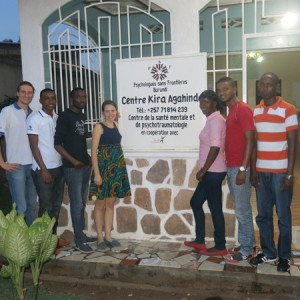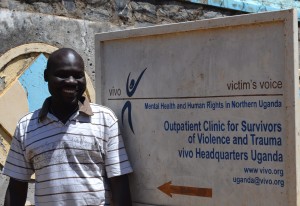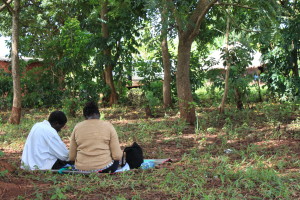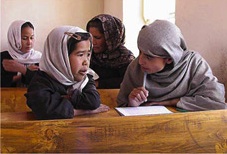vivo counsellors have been providing trauma-therapy in war-affected communities of Northern Uganda since 2007 mostly for severely traumatised formerly abducted children now grown into young adults with their own families. For a long time vivo counsellors had realised the vast need for also an alcohol intervention, when meeting women and children affected by domestic violence that is often linked to male alcohol consumption.

war & conflict
Es werden alle Berichte über Projekte angezeigt, die sich mit Krieg & Konflikt beschäftigen.All project reports on war & conflict are displayed.
Setting a sign against alcohol abuse
vivo counsellors have been providing trauma-therapy in war-affected communities of Northern Uganda since 2007 mostly for severely traumatised formerly abducted children now grown into young adults with their own families. For a long time vivo counsellors had realised the vast need for also an alcohol intervention, when meeting women and children affected by domestic violence that is often linked to male alcohol consumption.

Support for more than 90 women
The project to improve psychotherapeutic care for refugee pregnant women and mothers will be successfully completed at the end of April 2021.
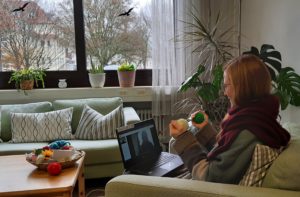
Since 2016, vivo has offered comprehensive psychological and trauma therapy support with the help of translators. The project also includes help with referral to psychotherapists in private practice. Professionals such as psychotherapists can take part in training on the topics of recognising traumatisation, dealing with trauma consequences and their effects on the family.
The project to improve psychotherapeutic care for refugee pregnant women and mothers will be successfully completed at the end of April 2021.

Since 2016, vivo has offered comprehensive psychological and trauma therapy support with the help of translators. The project also includes help with referral to psychotherapists in private practice. Professionals such as psychotherapists can take part in training on the topics of recognising traumatisation, dealing with trauma consequences and their effects on the family.
A promising project start
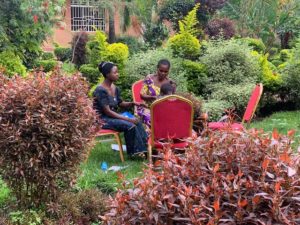
Building on the first 3-year project targeting victims of gender-based violence in Democratic Republic of Congo (DRC), the second follow-up project led by the vivo members Anselm Crombach and Amani Chibashimba aims at further reinforcing the local capacities to treat trauma-related mental health disorders.

Building on the first 3-year project targeting victims of gender-based violence in Democratic Republic of Congo (DRC), the second follow-up project led by the vivo members Anselm Crombach and Amani Chibashimba aims at further reinforcing the local capacities to treat trauma-related mental health disorders.
Findings on Narrative Exposure Therapy
Schneider, A., Pfeiffer, A., Conrad, D., Elbert, T., Kolassa, I.-T., Wilker, S. (2020).
Does cumulative exposure to traumatic stressors predict treatment outcome of community-implemented exposure-based therapy for PTSD?
European Journal of Psychotraumatology, 11:1, 1789323
Siehl, S., Robjant, K., Crombach, A. (2020).
Systematic review and meta-analyses of the long-term efficacy of narrative exposure therapy for adults, children and perpetrators
Psychotherapy Research
Schneider, A., Pfeiffer, A., Conrad, D., Elbert, T., Kolassa, I.-T., Wilker, S. (2020).
Does cumulative exposure to traumatic stressors predict treatment outcome of community-implemented exposure-based therapy for PTSD?
European Journal of Psychotraumatology, 11:1, 1789323
Siehl, S., Robjant, K., Crombach, A. (2020).
Systematic review and meta-analyses of the long-term efficacy of narrative exposure therapy for adults, children and perpetrators
Psychotherapy Research
vivo in the DR Congo: a new phase begins
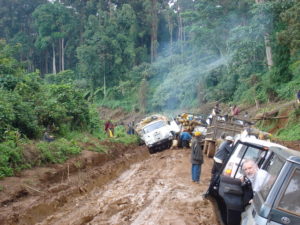
“Strengthening capacities in health care facilities and at the community level to improve the use of trauma therapy treatment services for victims of sexual violence” is the title of the project, which is will start in a few weeks.
Based on the experiences of the project “Training of trauma therapists to provide psychotherapeutic support to survivors of sexual violence in the Kivu region of the Democratic Republic of Congo”, which ended in November 2019, the new project will strengthen existing local structures and expand the activities to new zones. Lesen Sie weiter: vivo in the DR Congo: a new phase begins

“Strengthening capacities in health care facilities and at the community level to improve the use of trauma therapy treatment services for victims of sexual violence” is the title of the project, which is will start in a few weeks.
Based on the experiences of the project “Training of trauma therapists to provide psychotherapeutic support to survivors of sexual violence in the Kivu region of the Democratic Republic of Congo”, which ended in November 2019, the new project will strengthen existing local structures and expand the activities to new zones. Continue reading: vivo in the DR Congo: a new phase begins
New developments in DR Congo
In July 2016, the foundation stone was laid for the 2-year project to provide psychotherapeutic support for traumatised women and training for local trauma therapists in the Kivu region. Since then more than 170 local trauma counsellors have been trained, some of them even as supervisors and coordinators. At the end of the first two years, a further financing phase of 12 months was approved.
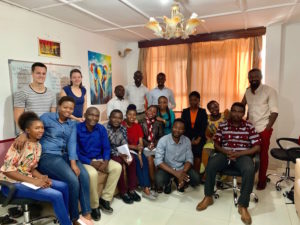
The almost three-year project duration was a very intensive time, which not only had to deal with the difficulties of a large project, but also with the partly uncertain security situation in the region, which did not always make it possible to visit all intervention zones regularly. In addition, there were the presidential elections at the end of 2018, which repeatedly led to unrest in the region in the run-up to the elections.
Today, the project is on solid footing. Lesen Sie weiter: New developments in DR Congo
In July 2016, the foundation stone was laid for the 2-year project to provide psychotherapeutic support for traumatised women and training for local trauma therapists in the Kivu region. Since then more than 170 local trauma counsellors have been trained, some of them even as supervisors and coordinators. At the end of the first two years, a further financing phase of 12 months was approved.

The almost three-year project duration was a very intensive time, which not only had to deal with the difficulties of a large project, but also with the partly uncertain security situation in the region, which did not always make it possible to visit all intervention zones regularly. In addition, there were the presidential elections at the end of 2018, which repeatedly led to unrest in the region in the run-up to the elections.
Today, the project is on solid footing. Continue reading: New developments in DR Congo
Project in Burundi receives an award
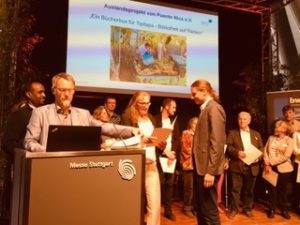
The vivo members Anselm Crombach and Anja Zeller received a public award for their commitment in Burundi by the Foundation for Development Cooperation Baden-Württemberg (SEZ) at this year’s „Fair Handeln“ fair on Saturday 27.04.2019 in Stuttgart. For four years now, projects of vivo international e.V. in Burundi have been supported by the SEZ. The aim of these projects has been to ensure basic psychological care for disadvantaged population groups.

The vivo members Anselm Crombach and Anja Zeller received a public award for their commitment in Burundi by the Foundation for Development Cooperation Baden-Württemberg (SEZ) at this year’s „Fair Handeln“ fair on Saturday 27.04.2019 in Stuttgart. For four years now, projects of vivo international e.V. in Burundi have been supported by the SEZ. The aim of these projects has been to ensure basic psychological care for disadvantaged population groups.
News from Gulu
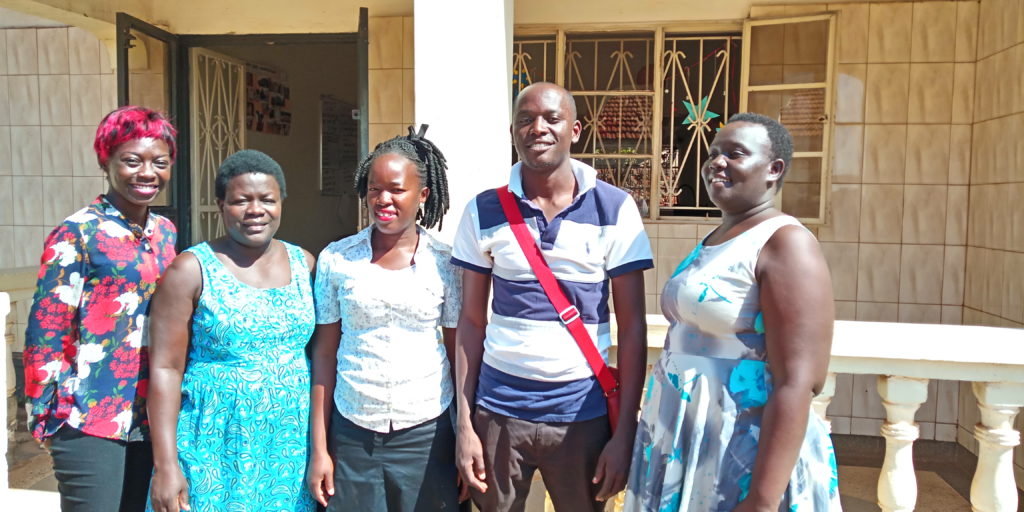
Training of new counsellors in January and February 2019 completed
Our 6 newly employed counsellors are joining our existing team of 15 senior counsellors. They are all lay personnel, having work experience and education only in non-psychological fields – but all completed successfully an intense practical and theoretical training and were chosen among 10 trainees and originally 40 applicants in total. Currently they are joining the senior counsellors in their treatment sessions in order to have a more intense on-the-job learning period before they will soon start their own treatments with highly traumatised clients by war, forceful abductions and torture.

Training of new counsellors in January and February 2019 completed
Our 6 newly employed counsellors are joining our existing team of 15 senior counsellors. They are all lay personnel, having work experience and education only in non-psychological fields – but all completed successfully an intense practical and theoretical training and were chosen among 10 trainees and originally 40 applicants in total. Currently they are joining the senior counsellors in their treatment sessions in order to have a more intense on-the-job learning period before they will soon start their own treatments with highly traumatised clients by war, forceful abductions and torture.
vivo at the Humanitarian Congress Berlin 2018
This year, the 20th anniversary of the Humanitarian Congress Berlin took place. The Congress is held by Médecins Sans Frontières/ Doctors without Borders (MSF), Doctors of the World, the German Red Cross and the Berlin Chamber of Physicians and is a platform for international NGOs to discuss the major issues and challenges of humanitarian action. vivo international presented itself as an NGO with an information booth and two talks.
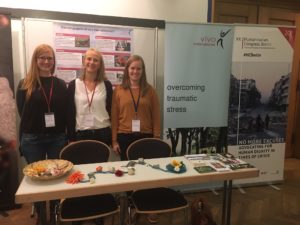
Lesen Sie weiter: vivo at the Humanitarian Congress Berlin 2018
This year, the 20th anniversary of the Humanitarian Congress Berlin took place. The Congress is held by Médecins Sans Frontières/ Doctors without Borders (MSF), Doctors of the World, the German Red Cross and the Berlin Chamber of Physicians and is a platform for international NGOs to discuss the major issues and challenges of humanitarian action. vivo international presented itself as an NGO with an information booth and two talks.

Continue reading: vivo at the Humanitarian Congress Berlin 2018
Support for the psychotrauma center
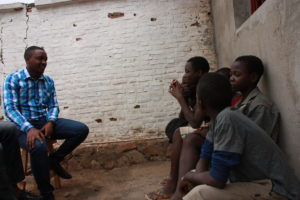
vivo, together with its local partner organisation “Psychologues sans Frontières Burundi” (PSF), plans to establish the psychotraumatology centre “Kira Agahinda” in Bujumbura (Burundi). In the past years, the team of the Psychotrauma Centre has worked mainly with street children and their families (see this link for more details). In order for the centre to manage in the long term, we need your support via crowdfunding!

vivo, together with its local partner organisation “Psychologues sans Frontières Burundi” (PSF), plans to establish the psychotraumatology centre “Kira Agahinda” in Bujumbura (Burundi). In the past years, the team of the Psychotrauma Centre has worked mainly with street children and their families (see this link for more details). In order for the centre to manage in the long term, we need your support via crowdfunding!
Goma: Successful project completion
In July 2016, the project “Assurer la formation des formateurs sur l’approche NET dans la prise en charge en sante mentale des survivants des VSBG” was launched, a two-year project in the regions of North and South Kivu. It is part of a major project of the Fonds Social de la Republique Democratique de Congo (FSDRC) with the aim of establishing sustainable care structures for victims of sexual violence with NET training and supervision in order to improve the situation of those affected in the long term.
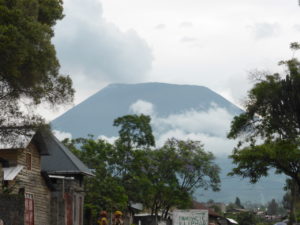
Lesen Sie weiter: Goma: Successful project completion
In July 2016, the project “Assurer la formation des formateurs sur l’approche NET dans la prise en charge en sante mentale des survivants des VSBG” was launched, a two-year project in the regions of North and South Kivu. It is part of a major project of the Fonds Social de la Republique Democratique de Congo (FSDRC) with the aim of establishing sustainable care structures for victims of sexual violence with NET training and supervision in order to improve the situation of those affected in the long term.

Continue reading: Goma: Successful project completion
Exchange workshop in Rwanda
In September 2017 vivo was invited to participate in a one-week exchange workshop in Huye, Rwanda between different organisations working with persons affected by violence in (post-)conflict region of Eastern Africa, specifically in Northern Uganda, Rwanda and Eastern DRCongo.
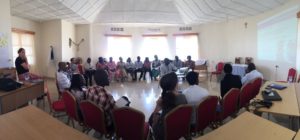
vivo board member Heike Riedke reports experiences in DRC
On Wednesday, June 28th 2017, Heike Riedke was invited by the German Central Office for Combating War Crimes and Other Offenses according to the Code of Crimes against International Law to a course on “International Criminal Law” to share her experiences made in the Democratic Republic of the Congo (DRC).
The course, which lasted several days, focused on one day on the topic of “Psychological characteristics for interviewing victims”. Based on the yearlong work experiences that vivo International has in DRC, especially in the treatment of victims of sexual violence in a civilian as well as in the war context, Heike Riedke described her experiences that she had made during her many visits and was therefore well prepared to answer the subsequent questions of the 30 participants.
On Wednesday, June 28th 2017, Heike Riedke was invited by the German Central Office for Combating War Crimes and Other Offenses according to the Code of Crimes against International Law to a course on “International Criminal Law” to share her experiences made in the Democratic Republic of the Congo (DRC).
The course, which lasted several days, focused on one day on the topic of “Psychological characteristics for interviewing victims”. Based on the yearlong work experiences that vivo International has in DRC, especially in the treatment of victims of sexual violence in a civilian as well as in the war context, Heike Riedke described her experiences that she had made during her many visits and was therefore well prepared to answer the subsequent questions of the 30 participants.
10-year-anniversary of vivo NET counsellors in Northern Uganda
It is an overused expression, but it really feels like “time is flying” – yes, it has been already 10 years that vivo international trained their first local lay personnel in Northern Uganda to provide NET treatment for traumatised survivors of violence and torture.
So this year we are celebrating the 10-year-anniversary of 7 senior counsellors working for vivo international in Northern Uganda.
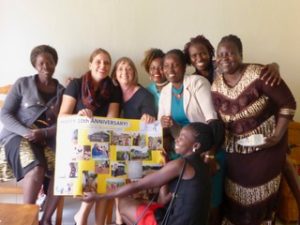
Lesen Sie weiter: 10-year-anniversary of vivo NET counsellors in Northern Uganda
It is an overused expression, but it really feels like “time is flying” – yes, it has been already 10 years that vivo international trained their first local lay personnel in Northern Uganda to provide NET treatment for traumatised survivors of violence and torture.
So this year we are celebrating the 10-year-anniversary of 7 senior counsellors working for vivo international in Northern Uganda.

Continue reading: 10-year-anniversary of vivo NET counsellors in Northern Uganda
Impressions from vivo’s outpatient clinic in Northern Uganda
In 2017 the vivo outpatient clinic in Gulu, Northern Uganda, is still successful and impressing us with their work.
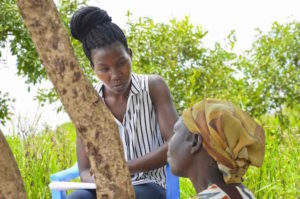
Lesen Sie weiter: Impressions from vivo’s outpatient clinic in Northern Uganda
In 2017 the vivo outpatient clinic in Gulu, Northern Uganda, is still successful and impressing us with their work.

Continue reading: Impressions from vivo’s outpatient clinic in Northern Uganda
vivo at the Global Mental Health Conference
King’s Health Partners are hosting a 2-day conference on Global Mental Health and Psychosocial Support in London, UK on 5th and 6th June 2017. With new approaches to solving the mental health care challenges of our local communities, this conference will showcase exceptional psychosocial approaches to mental health problems which have been developed across the world at individual, community and global levels.
We are happy to announce that Amani Chibashima Christian and Dr. Katy Robjant will speak for vivo international about using Narrative Exposure Therapy in the treatment of PTSD in victims of SGBV and former child soldiers in Eastern Democratic Republic of the Congo.
For more information, please follow this link.
King’s Health Partners are hosting a 2-day conference on Global Mental Health and Psychosocial Support in London, UK on 5th and 6th June 2017. With new approaches to solving the mental health care challenges of our local communities, this conference will showcase exceptional psychosocial approaches to mental health problems which have been developed across the world at individual, community and global levels.
We are happy to announce that Amani Chibashima Christian and Dr. Katy Robjant will speak for vivo international about using Narrative Exposure Therapy in the treatment of PTSD in victims of SGBV and former child soldiers in Eastern Democratic Republic of the Congo.
For more information, please follow this link.
Honorary awards for two vivo-members
Two vivo founding members Prof. Dr. Thomas Elbert and Dr. Maggie Schauer received the Carl Friedrich von Weizsäcker-Prize for their outstanding research on the consequences of traumatic experiences. The German National Academy of Sciences Leopoldina and the “Stifterverband für die Deutsche Wissenschaft” give the Carl Friedrich von Weizsäcker-Prize to researchers who “have made a significant scientific contribution to tackling the great challenges facing society today”.
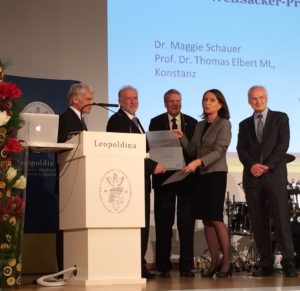
Many congratulations to both!
Two vivo founding members Prof. Dr. Thomas Elbert and Dr. Maggie Schauer received the Carl Friedrich von Weizsäcker-Prize for their outstanding research on the consequences of traumatic experiences. The German National Academy of Sciences Leopoldina and the “Stifterverband für die Deutsche Wissenschaft” give the Carl Friedrich von Weizsäcker-Prize to researchers who “have made a significant scientific contribution to tackling the great challenges facing society today”.

Many congratulations to both!
Therapy for traumatized refugees
German article on the dissemination of psychotherapy modules for traumatized refugees. Experience gained from trauma work in crisis and conflict regions.
Elbert, T., Wilker, S., Schauer, M., Neuner, F. (2016)
Dissemination psychotherapeutischer Module für traumatisierte Geflüchtete. Erkenntnisse aus der Traumaarbeit in Krisen- und Kriegsregionen.
Nervenarzt.
German article on the dissemination of psychotherapy modules for traumatized refugees. Experience gained from trauma work in crisis and conflict regions.
Elbert, T., Wilker, S., Schauer, M., Neuner, F. (2016)
Dissemination psychotherapeutischer Module für traumatisierte Geflüchtete. Erkenntnisse aus der Traumaarbeit in Krisen- und Kriegsregionen.
Nervenarzt.
Posttraumatic stress in war-affected youth
Winkler, N., Ruf-Leuschner, M., Ertl, V., Pfeiffer, A., Schalinski, I., Ovuga, E., Neuner, F., Elbert, T. (2015).
From war to classroom: PTSD and depression in formerly abducted youth in Uganda.
Frontiers in Psychiatry, 6, 2.
Winkler, N., Ruf-Leuschner, M., Ertl, V., Pfeiffer, A., Schalinski, I., Ovuga, E., Neuner, F., Elbert, T. (2015).
From war to classroom: PTSD and depression in formerly abducted youth in Uganda.
Frontiers in Psychiatry, 6, 2.
Narrative Exposure Therapy for Syria
The ongoing conflict in Syria has caused the death of thousands of people and the forced displacement of millions, both within and outside the country. Nevertheless the people who remain in Syria continue to experience atrocities of war and are at high risk of developing posttraumatic stress disorder. The mental health workers in Syria are also in urgent need for guidance and support that could facilitate them to treat effectively the growing number of traumatized people. Lesen Sie weiter: Narrative Exposure Therapy for Syria
The ongoing conflict in Syria has caused the death of thousands of people and the forced displacement of millions, both within and outside the country. Nevertheless the people who remain in Syria continue to experience atrocities of war and are at high risk of developing posttraumatic stress disorder. The mental health workers in Syria are also in urgent need for guidance and support that could facilitate them to treat effectively the growing number of traumatized people. Continue reading: Narrative Exposure Therapy for Syria
26. June 2016 – International day in support of victims of torture

Exactly 35 years ago the general assembly of the United Nations established the first human rights fund, the UN Voluntary Fund for Victims of Torture (UNVFVT). Nowadays the fund supports more than 170 projects every year in 83 countries and enables the rehabilitation of many children and adults, who were victims of torture.
Two of these projects are realised by vivo international, one in Uganda and one in Germany.
We thank the UNVFVT for the great support and the effort to fight torture as the severest and most prevalent violation of human rights.
For more information on the international day please follow this link.
On the occasion of the 35. anniversary of the “UN fund for victims of torture” a brochure was published with stories of victims of torture on their journey to healing and regaining their dignity. vivo contributed to this brochure. Please read more following this link.

Exactly 35 years ago the general assembly of the United Nations established the first human rights fund, the UN Voluntary Fund for Victims of Torture (UNVFVT). Nowadays the fund supports more than 170 projects every year in 83 countries and enables the rehabilitation of many children and adults, who were victims of torture.
Two of these projects are realised by vivo international, one in Uganda and one in Germany.
We thank the UNVFVT for the great support and the effort to fight torture as the severest and most prevalent violation of human rights.
For more information on the international day please follow this link.
On the occasion of the 35. anniversary of the “UN fund for victims of torture” a brochure was published with stories of victims of torture on their journey to healing and regaining their dignity. vivo contributed to this brochure. Please read more following this link.
News from the center of psychotraumatology
The fundraising for a center of psychotraumatology in Burundi is very successful. vivo member Anselm Crombach and his team visited the Burundian colleagues and the center of psychotraumatology in March 2016.
Lesen Sie weiter: News from the center of psychotraumatology
The fundraising for a center of psychotraumatology in Burundi is very successful. vivo member Anselm Crombach and his team visited the Burundian colleagues and the center of psychotraumatology in March 2016.
Continue reading: News from the center of psychotraumatology
Presenting vivo’s work at the annual meeting of the DeGPT
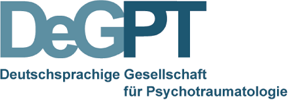
Several vivo-members presented vivo’s work on the 18. annual meeting of the german speaking society for psychotraumatology (DeGPT) from 10. to 12. March 2016.
Dr. Maggie Schauer promotes in her lecture “Mental health first!” a paradigm shift in the care systems for refugees in Germany. Dr. Thomas Elbert presented the trauma-work with street children, gangs, former child soldiers and unaccompanied minor refugees. Dr. Tobias Hecker talked in two symposia about trauma and memory as well as trauma and violence.

Several vivo-members presented vivo’s work on the 18. annual meeting of the german speaking society for psychotraumatology (DeGPT) from 10. to 12. March 2016.
Dr. Maggie Schauer promotes in her lecture “Mental health first!” a paradigm shift in the care systems for refugees in Germany. Dr. Thomas Elbert presented the trauma-work with street children, gangs, former child soldiers and unaccompanied minor refugees. Dr. Tobias Hecker talked in two symposia about trauma and memory as well as trauma and violence.
Fundraising for a center of psychotraumatology in Burundi
vivo international and Psychologues sans Frontières Burundi aim to establish a center of psychotraumatology in Burundi to provide psychological assistance to socio-economically underprivileged individuals affected by trauma.
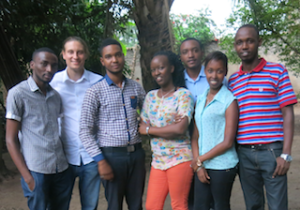
with vivo-member Dr. Anselm Crombach
Lesen Sie weiter: Fundraising for a center of psychotraumatology in Burundi
vivo international and Psychologues sans Frontières Burundi aim to establish a center of psychotraumatology in Burundi to provide psychological assistance to socio-economically underprivileged individuals affected by trauma.

with vivo-member Dr. Anselm Crombach
Continue reading: Fundraising for a center of psychotraumatology in Burundi
Family violence and trauma
Catani, C., Sossalla, I. (2015).
Child abuse predicts adult PTSD symptoms among individuals diagnosed with intellectual disabilities.
Frontiers in Psychology, 6:1600.
Crombach, A., Bambonyé, M. (2015).
Intergenerational violence in Burundi: Experienced childhood maltreatment increases the risk of abusive child rearing and intimate partner violence.
European Journal of Psychotraumatology, 6:26995.
Saile, R., Ertl, V., Neuner, F., Catani, C. (2015).
Children of the postwar years: A two-generational multilevel risk assessment of child psychopathology in northern Uganda.
Development and Psychopathology.
Sriskandarajah, V., Neuner, F., Catani, C. (2015).
Predictors of Violence Against Children in Tamil Families in Northern Sri Lanka.
Social Science and Medicine, 146:257-265.
Catani, C., Sossalla, I. (2015).
Child abuse predicts adult PTSD symptoms among individuals diagnosed with intellectual disabilities.
Frontiers in Psychology, 6:1600.
Crombach, A., Bambonyé, M. (2015).
Intergenerational violence in Burundi: Experienced childhood maltreatment increases the risk of abusive child rearing and intimate partner violence.
European Journal of Psychotraumatology, 6:26995.
Saile, R., Ertl, V., Neuner, F., Catani, C. (2015).
Children of the postwar years: A two-generational multilevel risk assessment of child psychopathology in northern Uganda.
Development and Psychopathology.
Sriskandarajah, V., Neuner, F., Catani, C. (2015).
Predictors of Violence Against Children in Tamil Families in Northern Sri Lanka.
Social Science and Medicine, 146:257-265.
Assembly on mental health in Gulu
10 Years Anniversary of vivo in Northern Uganda!
vivo international is looking back on 10 years of providing and improving mental health services in Northern Uganda. We are using this occasion to host a general assembly on mental health in Gulu on the 20th of October 2015. We will discuss and share accomplishments, challenges and visions with our cooperating partners, practitioners, researchers and scholars. Please click here for the invitation details.
10 Years Anniversary of vivo in Northern Uganda!
vivo international is looking back on 10 years of providing and improving mental health services in Northern Uganda. We are using this occasion to host a general assembly on mental health in Gulu on the 20th of October 2015. We will discuss and share accomplishments, challenges and visions with our cooperating partners, practitioners, researchers and scholars. Please click here for the invitation details.
NET with traumatised offenders
Crombach, C., Elbert, T.(2015).
Controlling Offensive Behavior Using Narrative Exposure Therapy: A Randomized Controlled Trial of Former Street Children.
Clinical Psychological Science, 3(2), 270-282
Hecker, T., Hermenau, K., Crombach, A., & Elbert, T. (2015).
Treating traumatized offenders and veterans by means of narrative exposure therapy.
Frontiers in Psychology, 6, 80.
Hermenau K, Hecker T, Schaal S, Mädl A, Elbert T (2013).
Addressing posttraumatic stress and aggression by means of Narrative Exposure: a randomized controlled trial with Ex-Combatants in the Eastern DRC.
Journal of Aggression, Maltreatment & Trauma, 22:8, 916-934.
Köbach, A., Schaal, S., Hecker, T., Elbert, T. (2015).
Psychotherapeutic Intervention in the Demobilization Process: Addressing Combat- related Mental Injuries with Narrative Exposure in a First and Second Dissemination Stage.
Clinical Psychology and Psychotherapy.
Crombach, C., Elbert, T.(2015).
Controlling Offensive Behavior Using Narrative Exposure Therapy: A Randomized Controlled Trial of Former Street Children.
Clinical Psychological Science, 3(2), 270-282
Hecker, T., Hermenau, K., Crombach, A., & Elbert, T. (2015).
Treating traumatized offenders and veterans by means of narrative exposure therapy.
Frontiers in Psychology, 6, 80.
Hermenau K, Hecker T, Schaal S, Mädl A, Elbert T (2013).
Addressing posttraumatic stress and aggression by means of Narrative Exposure: a randomized controlled trial with Ex-Combatants in the Eastern DRC.
Journal of Aggression, Maltreatment & Trauma, 22:8, 916-934.
Köbach, A., Schaal, S., Hecker, T., Elbert, T. (2015).
Psychotherapeutic Intervention in the Demobilization Process: Addressing Combat- related Mental Injuries with Narrative Exposure in a First and Second Dissemination Stage.
Clinical Psychology and Psychotherapy.
Mental health and research in conflict settings
Ertl, V., Pfeiffer, A., Saile, R., Schauer, E., Elbert, T., Neuner, F. (2010).
Validation of a mental health assessment in an African conflict population.
Psychol Assessment 22(2), 318-24.
Neuner, F. (2010).
Assisting war-torn populations – Should we prioritize reducing daily stressors to improve mental health? Comment on Miller and Rasmussen (2010).
Soc Sci Med.
Neuner, F., Elbert, T. (2007).
The mental health in conflict settings: Can scientific research help?
BMC Public Health, 7:275.
Ertl, V., Pfeiffer, A., Saile, R., Schauer, E., Elbert, T., Neuner, F. (2010).
Validation of a mental health assessment in an African conflict population.
Psychol Assessment 22(2), 318-24.
Neuner, F. (2010).
Assisting war-torn populations – Should we prioritize reducing daily stressors to improve mental health? Comment on Miller and Rasmussen (2010).
Soc Sci Med.
Neuner, F., Elbert, T. (2007).
The mental health in conflict settings: Can scientific research help?
BMC Public Health, 7:275.
Post-traumatic stress in children from Sri Lanka and Afghanistan
Catani, C. , Gewirtz, A., Wieling, E., Schauer, E., Elbert, T., Neuner, F. (2010).
Tsunami, war, and cumulative risk in the life of Sri Lankan school children.
Child Development, 81(4), 1176-91.
Catani, C. , Kohiladevy, M., Ruf, M., Schauer, E., Elbert, T. & Neuner, F.(2009).
Treating children traumatized by war and Tsunami: A comparison between exposure therapy and meditation-relaxation in North-East Sri Lanka.
BMC Psychiatry, 9:22.
Catani, C. , Schauer, E., Elbert, T., Missmahl, I., Bette, J.-P., Neuner, F. (2009).
War trauma, child labor and family violence: Life adversities and PTSD in a sample of school children in Kabul.
Journal of Traumatic Stress, 22(3), 163-171.
Catani, C. , Jacob N., Schauer, E., Kohila, M., Neuner, F.(2008).
Family violence, war, and natural disasters: Effect of extreme stress on children’s mental health in Sri Lanka.
BMC Psychiatry, 8:33.
Catani, C., Schauer, E., & Neuner, F. (2008). Beyond individual war trauma: domestic violence against children in Afghanistan and Sri Lanka.
J Marital Fam Ther, 34(2), 165-176.
Elbert, T., Schauer, M., Schauer, E., Huschka, B., Hirth, M., Neuner, F. (2009).
Trauma-related impairment in children – a survey in Sri Lankan provinces affected by armed conflict.
Child Abuse and Neglect, 33, 238-246.
Neuner, F., Schauer, E., Catani, C., Ruf, M. & Elbert, T. (2006).
Post-tsunami Stress: A Study of Posttraumatic Stress Disorder in Children living in three severely Affected Regions in Sri Lanka.
Journal of Traumatic Stress, 19(3), 339-347.
Catani, C. , Gewirtz, A., Wieling, E., Schauer, E., Elbert, T., Neuner, F. (2010).
Tsunami, war, and cumulative risk in the life of Sri Lankan school children.
Child Development, 81(4), 1176-91.
Catani, C. , Kohiladevy, M., Ruf, M., Schauer, E., Elbert, T. & Neuner, F.(2009).
Treating children traumatized by war and Tsunami: A comparison between exposure therapy and meditation-relaxation in North-East Sri Lanka.
BMC Psychiatry, 9:22.
Catani, C. , Schauer, E., Elbert, T., Missmahl, I., Bette, J.-P., Neuner, F. (2009).
War trauma, child labor and family violence: Life adversities and PTSD in a sample of school children in Kabul.
Journal of Traumatic Stress, 22(3), 163-171.
Catani, C. , Jacob N., Schauer, E., Kohila, M., Neuner, F.(2008).
Family violence, war, and natural disasters: Effect of extreme stress on children’s mental health in Sri Lanka.
BMC Psychiatry, 8:33.
Catani, C., Schauer, E., & Neuner, F. (2008). Beyond individual war trauma: domestic violence against children in Afghanistan and Sri Lanka.
J Marital Fam Ther, 34(2), 165-176.
Elbert, T., Schauer, M., Schauer, E., Huschka, B., Hirth, M., Neuner, F. (2009).
Trauma-related impairment in children – a survey in Sri Lankan provinces affected by armed conflict.
Child Abuse and Neglect, 33, 238-246.
Neuner, F., Schauer, E., Catani, C., Ruf, M. & Elbert, T. (2006).
Post-tsunami Stress: A Study of Posttraumatic Stress Disorder in Children living in three severely Affected Regions in Sri Lanka.
Journal of Traumatic Stress, 19(3), 339-347.
Articles on vivo’s work in Rwanda
Schaal, S., Elbert, T. & Neuner, F. (2009).
Prolonged grief disorder and depression in widows due to the Rwandan genocide.
Omega, 59(3), 203-219.
Schaal, S., Elbert, T., & Neuner, F. (2009).
Narrative Exposure Therapy versus interpersonal psychotherapy. A pilot randomized controlled trial with Rwandan genocide orphans.
Psychotherapy and Psychosomatics.
Schaal, S. & Elbert, T. (2006).
Ten Years after the Genocide: Trauma Confrontation and Posttraumatic Stress in Rwandan Adolescents.
Journal of Traumatic Stress, 19(1), 95-105.
Schaal, S., Elbert, T. & Neuner, F. (2009).
Prolonged grief disorder and depression in widows due to the Rwandan genocide.
Omega, 59(3), 203-219.
Schaal, S., Elbert, T., & Neuner, F. (2009).
Narrative Exposure Therapy versus interpersonal psychotherapy. A pilot randomized controlled trial with Rwandan genocide orphans.
Psychotherapy and Psychosomatics.
Schaal, S. & Elbert, T. (2006).
Ten Years after the Genocide: Trauma Confrontation and Posttraumatic Stress in Rwandan Adolescents.
Journal of Traumatic Stress, 19(1), 95-105.
Findings on substance abuse
Odenwald, M., Hinkel, H., Schauer, E., Schauer, M., Elbert, T., Neuner, F. & Rockstroh, B. (2009).
Use of khat and posttraumatic stress disorder as risk factors for psychotic symptoms: a study of Somali combatants.
Social Science and Medicine, 69, 1040-1048.Odenwald, M., Hinkel, H. & Schauer, E. (2007).
Challenges for a future reintegration programme in Somalia: outcomes of an assessment on drug abuse, psychological distress and preferences for reintegration assistance.
Intervention, 5(2), 124-129.
Odenwald, M., Hinkel, H., Schauer, E., Neuner, F., Schauer, M., Elbert, T. & Rockstroh, B. (2007).
The Consumption of Khat and Other Drugs in Somali Combatants: A Cross-Sectional Study.
PLoS Med, 4(12): e341.
Odenwald, M., Lingenfelder, B. & Peschel, W. (2008).
Psychotic disorder, khat abuse and aggressive behavior: a case report in Somalia.
African Journal of Drug and Alcohol Studies, Vol. 7(1), 59-63.
Odenwald, M., Lingenfelder, B., Schauer, M., Neuner, F., Rockstroh, B., Hinkel, H., Elbert, T. (2007). Screening for Posttraumatic Stress Disorder among Somali ex-combatants: A validation study.
BMC Conflict and Health, 1:10.
Odenwald, M., Neuner, F., Schauer, M., Elbert, T., Catani, C., Lingenfelder, B., Hinkel, H., Häfner, H., Rockstroh, B. (2005).
Khat use as risk factor for psychotic disorders: A cross-sectional and case-control study in Somalia.
BMC Med, 3(1):5.
Odenwald, M., Hinkel, H., Schauer, E., Schauer, M., Elbert, T., Neuner, F. & Rockstroh, B. (2009).
Use of khat and posttraumatic stress disorder as risk factors for psychotic symptoms: a study of Somali combatants.
Social Science and Medicine, 69, 1040-1048.Odenwald, M., Hinkel, H. & Schauer, E. (2007).
Challenges for a future reintegration programme in Somalia: outcomes of an assessment on drug abuse, psychological distress and preferences for reintegration assistance.
Intervention, 5(2), 124-129.
Odenwald, M., Hinkel, H., Schauer, E., Neuner, F., Schauer, M., Elbert, T. & Rockstroh, B. (2007).
The Consumption of Khat and Other Drugs in Somali Combatants: A Cross-Sectional Study.
PLoS Med, 4(12): e341.
Odenwald, M., Lingenfelder, B. & Peschel, W. (2008).
Psychotic disorder, khat abuse and aggressive behavior: a case report in Somalia.
African Journal of Drug and Alcohol Studies, Vol. 7(1), 59-63.
Odenwald, M., Lingenfelder, B., Schauer, M., Neuner, F., Rockstroh, B., Hinkel, H., Elbert, T. (2007). Screening for Posttraumatic Stress Disorder among Somali ex-combatants: A validation study.
BMC Conflict and Health, 1:10.
Odenwald, M., Neuner, F., Schauer, M., Elbert, T., Catani, C., Lingenfelder, B., Hinkel, H., Häfner, H., Rockstroh, B. (2005).
Khat use as risk factor for psychotic disorders: A cross-sectional and case-control study in Somalia.
BMC Med, 3(1):5.
Findings on post-traumatic stress
Elbert T., Schauer, M. (2002).
Psychological trauma: Burnt into memory.
Nature, 419, 883.
Karunakara, U., Neuner, F., Schauer, M., Singh, K., Hill, K., Elbert, T., Burnham G. (2004).
Traumatic Events and Symptoms of Post-traumatic Stress Disorder amongst Sudanese nationals, refugees and Ugandan nationals in the West Nile.
African Health Sciences, 4(2), 83-93.
Neuner, F., Schauer, M., Karunakara, U., Klaschik, C., Robert C., Elbert, T. (2004).
Psychological trauma and evidence for enhanced vulnerability for PTSD through previous trauma in West Nile refugees.
BMC Psychiatry, 4: 34.
Onyut, P.L., Neuner F., Schauer E., Ertl V., Odenwald, M., Schauer, M., Elbert T. (2004).
The Nakivale Camp Mental Health Project: Building local competency for psychological assistance to traumatised refugees.
Intervention,2 (2), 90-107.
Elbert T., Schauer, M. (2002).
Psychological trauma: Burnt into memory.
Nature, 419, 883.
Karunakara, U., Neuner, F., Schauer, M., Singh, K., Hill, K., Elbert, T., Burnham G. (2004).
Traumatic Events and Symptoms of Post-traumatic Stress Disorder amongst Sudanese nationals, refugees and Ugandan nationals in the West Nile.
African Health Sciences, 4(2), 83-93.
Neuner, F., Schauer, M., Karunakara, U., Klaschik, C., Robert C., Elbert, T. (2004).
Psychological trauma and evidence for enhanced vulnerability for PTSD through previous trauma in West Nile refugees.
BMC Psychiatry, 4: 34.
Onyut, P.L., Neuner F., Schauer E., Ertl V., Odenwald, M., Schauer, M., Elbert T. (2004).
The Nakivale Camp Mental Health Project: Building local competency for psychological assistance to traumatised refugees.
Intervention,2 (2), 90-107.
Fighting the war in the minds – Trainings in Narrative Exposure Therapy
vivo international has more than a decade of experience in training local personnel in conflict- and post-conflict areas to deliver trauma-focused therapy (Narrative Exposure Therapy) and similar methods. In October 2013 vivo organized two trainings in trauma therapy in the Kivu regions in Goma and Bukavu. The aim of vivo was to enable local staff in this war-affected region to help traumatized people in need.
Lesen Sie weiter: Fighting the war in the minds – Trainings in Narrative Exposure Therapy
vivo international has more than a decade of experience in training local personnel in conflict- and post-conflict areas to deliver trauma-focused therapy (Narrative Exposure Therapy) and similar methods. In October 2013 vivo organized two trainings in trauma therapy in the Kivu regions in Goma and Bukavu. The aim of vivo was to enable local staff in this war-affected region to help traumatized people in need.
Continue reading: Fighting the war in the minds – Trainings in Narrative Exposure Therapy
Facts and Numbers for the „vivo outpatient clinic for survivors of violence and trauma“ in Gulu
Since April 2011 the vivo outpatient clinic in Gulu, Northern Uganda is a steady service provider for the rehabilitation of chronic trauma-related mental health problems of survivors of violence and trauma during the war and in the post-conflict society.
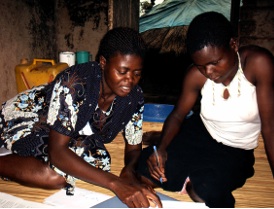
Our work in Gulu Prison
Since October 2012 vivo is also working in the prison of Gulu. The approximately 700 male inmates and approx. 300 female inmates are also often formerly abducted by the LRA and suffer as well from Posttraumatic Stress Disorder. The mental health well-being of the inmates is also influenced by the long pre-trial detention times (Uganda has too little personnel, e.g. only a few judges responsible for capital offences) and the general poverty: the inmates are dependent on their relatives to provide for food and legal fees.
Since October 2012 vivo is also working in the prison of Gulu. The approximately 700 male inmates and approx. 300 female inmates are also often formerly abducted by the LRA and suffer as well from Posttraumatic Stress Disorder. The mental health well-being of the inmates is also influenced by the long pre-trial detention times (Uganda has too little personnel, e.g. only a few judges responsible for capital offences) and the general poverty: the inmates are dependent on their relatives to provide for food and legal fees.
Treating the victims of gender based violence
Sosame is a psychiatric hospital situated in Bukavu, in the South-Kivu province in the eastern Democratic Republic of the Congo. The hospital is managed by the “Brothers of Charity“ (“Frères de la Charité“) and treats people with severe mental illnesses from the whole province. The people who are seeking help here have hallucinations, are depressed, drug addicted or traumatised.
Lesen Sie weiter: Treating the victims of gender based violence
Sosame is a psychiatric hospital situated in Bukavu, in the South-Kivu province in the eastern Democratic Republic of the Congo. The hospital is managed by the “Brothers of Charity“ (“Frères de la Charité“) and treats people with severe mental illnesses from the whole province. The people who are seeking help here have hallucinations, are depressed, drug addicted or traumatised.
Continue reading: Treating the victims of gender based violence
Psychosocial support for survivors of gender-based violence
In our work in Northern Uganda, vivo recorded alarmingly high rates of acts of gender-based violence: More than 80% of the female clients who had received trauma-focused treatments through vivo reported at least one sexual assault during their lifetime. Some of these traumatic sexual experiences took place during the war, but even in the post-conflict society sexual assaults towards women and children are on the rise. To provide psychotherapeutic support to survivors of gender-based violence, vivo was funded by the UN (namely the UN Peace Building Fund via UNFPA) in the framework of the project “Strengthening the Multisectoral Approach to Gender-Based Violence Prevention and Response” from April 2011 until June 2012. In the course of this project, vivo offered a wide range of psychological support for traumatised children and women, which included psychodiagnostic assessments, trauma-focused therapy, solution-focused and resource-oriented counselling, family mediation and follow-up visits.
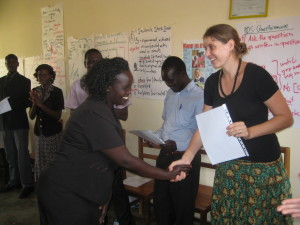
Lesen Sie weiter: Psychosocial support for survivors of gender-based violence
In our work in Northern Uganda, vivo recorded alarmingly high rates of acts of gender-based violence: More than 80% of the female clients who had received trauma-focused treatments through vivo reported at least one sexual assault during their lifetime. Some of these traumatic sexual experiences took place during the war, but even in the post-conflict society sexual assaults towards women and children are on the rise. To provide psychotherapeutic support to survivors of gender-based violence, vivo was funded by the UN (namely the UN Peace Building Fund via UNFPA) in the framework of the project “Strengthening the Multisectoral Approach to Gender-Based Violence Prevention and Response” from April 2011 until June 2012. In the course of this project, vivo offered a wide range of psychological support for traumatised children and women, which included psychodiagnostic assessments, trauma-focused therapy, solution-focused and resource-oriented counselling, family mediation and follow-up visits.

Continue reading: Psychosocial support for survivors of gender-based violence
From soldier to civilian: Demobilising the mind
For over a year vivo international has been collaborating with a centre for youth and adolescents in Goma in the eastern Democratic Republic of the Congo. The centre offers adolescents who are affected by the war social support and a vocational training in order to give them a new perspective on their future. The adolescents receive a one-year training, support from social workers and help with job-seeking. The centre supports many former child soldiers. The former child soldiers were minors when they joined an armed group; today they are adolescents and young adults who are trying to find their way into civil life. However, this journey is a rocky road, many of them have difficulties integrating. Many of them suffer from traumatic experiences and can be irritable and violent. Hence, they can only partially benefit from the reintegration programme and some do not complete it successfully.
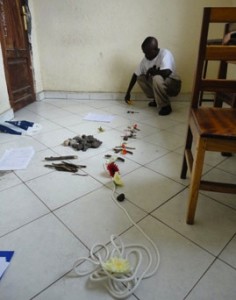
Lesen Sie weiter: From soldier to civilian: Demobilising the mind
For over a year vivo international has been collaborating with a centre for youth and adolescents in Goma in the eastern Democratic Republic of the Congo. The centre offers adolescents who are affected by the war social support and a vocational training in order to give them a new perspective on their future. The adolescents receive a one-year training, support from social workers and help with job-seeking. The centre supports many former child soldiers. The former child soldiers were minors when they joined an armed group; today they are adolescents and young adults who are trying to find their way into civil life. However, this journey is a rocky road, many of them have difficulties integrating. Many of them suffer from traumatic experiences and can be irritable and violent. Hence, they can only partially benefit from the reintegration programme and some do not complete it successfully.

Continue reading: From soldier to civilian: Demobilising the mind
Establishment of a trauma-focused outpatient clinic for Northern Uganda
Since 1986 there has been an unrelenting and brutal war in the Northern districts of Uganda, led by the rebel group called the “Lord’s Resistance Army”. Studies by vivo have repeatedly shown that the psychological consequences of these two decades of war and terror are still ongoing: Despite the fact that the fighting ended in 2005, many survivors cannot forget their experiences and continuously relive them in the form of intruding memories, nightmares and flashbacks. For them, the war continues in their minds. Furthermore, this long-lasting war has shattered social norms of non-violent interactions, which manifests in severe cases of violence within families and communities and thus leads to further traumatization.
Lesen Sie weiter: Establishment of a trauma-focused outpatient clinic for Northern Uganda
Since 1986 there has been an unrelenting and brutal war in the Northern districts of Uganda, led by the rebel group called the “Lord’s Resistance Army”. Studies by vivo have repeatedly shown that the psychological consequences of these two decades of war and terror are still ongoing: Despite the fact that the fighting ended in 2005, many survivors cannot forget their experiences and continuously relive them in the form of intruding memories, nightmares and flashbacks. For them, the war continues in their minds. Furthermore, this long-lasting war has shattered social norms of non-violent interactions, which manifests in severe cases of violence within families and communities and thus leads to further traumatization.
Continue reading: Establishment of a trauma-focused outpatient clinic for Northern Uganda
Sri Lanka – a country shattered by war and natural disaster
In Sri Lanka’s North-Eastern provinces, traumatic experiences were already common prior to the Tsunami in December 2004. For two decades, thousands of people have been killed and many more were displaced as a result of conflict and violence in the country. The Liberation Tigers of Tamil Elam (LTTE) have been fighting for political autonomy, which resulted in ongoing conflict in the Northern and Eastern areas of the country. Civilians have become casualties of war; landmines and unexploded ordnance posed a constant threat; hospitals and schools have been destroyed; and the economy has been shattered.
Lesen Sie weiter: Sri Lanka – a country shattered by war and natural disaster
In Sri Lanka’s North-Eastern provinces, traumatic experiences were already common prior to the Tsunami in December 2004. For two decades, thousands of people have been killed and many more were displaced as a result of conflict and violence in the country. The Liberation Tigers of Tamil Elam (LTTE) have been fighting for political autonomy, which resulted in ongoing conflict in the Northern and Eastern areas of the country. Civilians have become casualties of war; landmines and unexploded ordnance posed a constant threat; hospitals and schools have been destroyed; and the economy has been shattered.
Continue reading: Sri Lanka – a country shattered by war and natural disaster
Rwandan psychologists trained by their own peers
vivo has been engaged with Rwandan survivors of genocide, still suffering from trauma-related consequences, since 2006. An important component was the training of a group of Rwandan psychologists by vivo experts in Narrative Exposure Therapy (NET) and Interpersonal Therapy (IPT), during the autumn of 2007. Eighty-six genocide victims were randomly assigned into a treatment and a waiting list control group. Under expert supervision, the Rwandan therapists conducted 6 sessions of NET and 2 sessions of IPT and social interventions, each taking between 90 and 150 minutes. All 37 treatments were completed with great success and the participants improved considerably, observed in the reduction of symptoms of trauma, grief, and depression (effect size for the reduction of trauma symptoms: d= 0.66 at 3 month post-test and d= 1.48 at 1 year follow-up).
Lesen Sie weiter: Rwandan psychologists trained by their own peers
vivo has been engaged with Rwandan survivors of genocide, still suffering from trauma-related consequences, since 2006. An important component was the training of a group of Rwandan psychologists by vivo experts in Narrative Exposure Therapy (NET) and Interpersonal Therapy (IPT), during the autumn of 2007. Eighty-six genocide victims were randomly assigned into a treatment and a waiting list control group. Under expert supervision, the Rwandan therapists conducted 6 sessions of NET and 2 sessions of IPT and social interventions, each taking between 90 and 150 minutes. All 37 treatments were completed with great success and the participants improved considerably, observed in the reduction of symptoms of trauma, grief, and depression (effect size for the reduction of trauma symptoms: d= 0.66 at 3 month post-test and d= 1.48 at 1 year follow-up).
Continue reading: Rwandan psychologists trained by their own peers
Mental health survey among children in Kabul
In February 2005 vivo had trained a group of 32 local counsellors in the concepts of Traumatic Stress, PTSD and Narrative Exposure Therapy for traumatized survivors of the war and Taliban regime in Afghanistan. In October, a vivo team came back to Kabul and, together with the previously trained counsellors, carried out an epidemiological survey in schools in Dachti Barchi area of Afghanistan’s capital.
Lesen Sie weiter: Mental health survey among children in Kabul
In February 2005 vivo had trained a group of 32 local counsellors in the concepts of Traumatic Stress, PTSD and Narrative Exposure Therapy for traumatized survivors of the war and Taliban regime in Afghanistan. In October, a vivo team came back to Kabul and, together with the previously trained counsellors, carried out an epidemiological survey in schools in Dachti Barchi area of Afghanistan’s capital.
Continue reading: Mental health survey among children in Kabul
Founding and current work of vivo Uganda
vivo decided to build a permanent base in the country in 2004. Local cooperation partners and team members formed vivo Uganda, the independent sister organization of vivo, which is registered with the country’s NGO board. With vivo becoming more and more visible in Uganda, local policy makers and officials requested vivo to not only focus on refugees, but engage in helping the war-affected and displaced population of Northern Uganda.
vivo decided to build a permanent base in the country in 2004. Local cooperation partners and team members formed vivo Uganda, the independent sister organization of vivo, which is registered with the country’s NGO board. With vivo becoming more and more visible in Uganda, local policy makers and officials requested vivo to not only focus on refugees, but engage in helping the war-affected and displaced population of Northern Uganda.
Refugees in Kenya
Kenya is among the countries that host a very high number of refugees in relation to its population. With Kakuma and Dadab it operates two of the largest refugee camps in the world, where hundreds of thousands of refugees from Sudan, Somalia and other war-torn countries live for decades in a semi-arid region. More than half a million Somali refugees live in the country. The project in which vivo is cooperating tries to develop and evaluate adapted psychiatric treatment strategies that address PTSD, substance abuse and severe psychotic disorders.
Kenya is among the countries that host a very high number of refugees in relation to its population. With Kakuma and Dadab it operates two of the largest refugee camps in the world, where hundreds of thousands of refugees from Sudan, Somalia and other war-torn countries live for decades in a semi-arid region. More than half a million Somali refugees live in the country. The project in which vivo is cooperating tries to develop and evaluate adapted psychiatric treatment strategies that address PTSD, substance abuse and severe psychotic disorders.
vivo in Somalia
Since 1991 the country has no functioning governemt and is considered as failed state. Throughout the past 13 years, vivo has cooperated with local and international organizations to implement projects in Somaliland, the North-Western part of Somalia.
Since 1991 the country has no functioning governemt and is considered as failed state. Throughout the past 13 years, vivo has cooperated with local and international organizations to implement projects in Somaliland, the North-Western part of Somalia.


